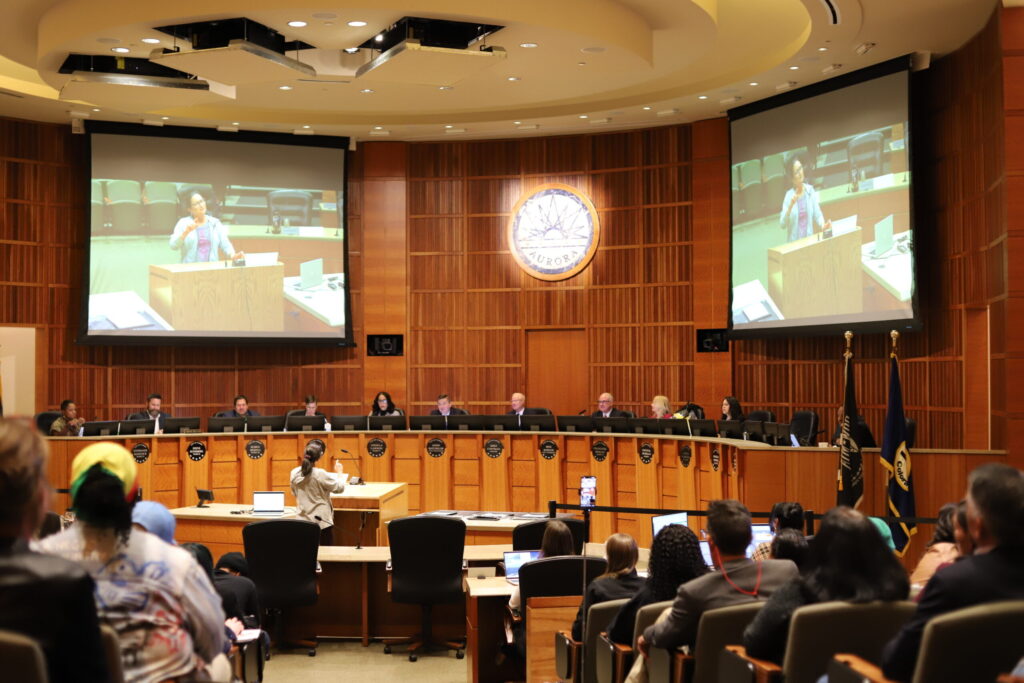National Org Sues Colorado over Marijuana Industry
Two lawsuits filed in federal court Thursday seek to force Colorado to end the legalization of marijuana.
The Safe Streets Alliance, along with a Frisco hotel and two Lakewood residents are suing the state, the local jurisdictions that zoned marijuana operations, and several marijuana distributors.
The named plaintiffs in one lawsuit, Michael and Hope Reilly of Lakewood, own 105 acres in Rye, located in Pueblo County, that they plan to use for a variety of purposes in the future. In a statement issued Thursday, Hope Reilly said the views are now “marred by the sight of an illegal drug conspiracy at our doorstep.”
The Reilly’s property is adjacent to the future site of a recreational marijuana grow operation, to be operated by Rocky Mountain Organic and owner Joseph Licata. Both the company and Licata are named defendants. Other named defendants are the Pueblo County Commission, its marijuana and liquor licensing board, Gov. John Hickenlooper and the state Department of Revenue, and several other marijuana operations.
In the Reilly lawsuit, attorney David Thompson of D.C.-based Cooper Kirk claims the marijuana operations damage the plaintiffs’ property values. The lawsuit seeks an injunction under the federal Racketeer Influenced and Corrupt Organizations Act to force the marijuana operations to stop violating federal drug laws, and it seeks redress under RICO, including treble damages for the Reillys, from the marijuana operation’s owners.
The state and Pueblo County governments also are part of that conspiracy, the lawsuit alleges, through their licensing of activities that violate federal drug laws. Federal law supersedes state law, the lawsuit says, so federal law making marijuana illegal should be enforced under the Controlled Substances Act of 1970.
In the second lawsuit, the Holiday Inn in Frisco, along with Safe Streets, is suing the proprietors of a planned recreational marijuana dispensary that is to be located about 75 feet away and across a parking lot from the hotel. The hotel owners make the same RICO claims as was cited in the Reilly lawsuit. These plaintiffs, however, are not suing the state or Summit County, which zoned and licensed the dispensary. Other named defendants include the owner of the building, the bank that holds the dispensary’s accounts, several investors in the dispensary, the dispensary’s accountant and an Iowa holding company that issues surety bonds for marijuana businesses.
Despite scheduling a press conference to announce the lawsuits, the plaintiffs refused to answer any questions about the lawsuit, deferring to their attorney.
In his statement, Thompson said the two suits have a single unifying theme: “dealing in recreational marijuana is a serious felony under federal law” and the state is powerless to change it.
However, the lawsuit deals only with recreational marijuana, because the two planned operations near the plaintiffs” properties are both recreational marijuana facilities. The lawsuit does not seek to force Colorado to end its licensing nor the sale of medical marijuana, although federal law makes no distinction between the two.
But Colorado law does make that distinction; voters passed Amendment 20, legalizing medical marijuana, in 2000. The amendment legalizing recreational marijuana came 12 years later. Marijuana regulations continue to make those distinctions as well, both at the state and local levels.
Thompson claims in his statement that the Holiday Inn has suffered “substantial” damages, although the recreational marijuana facility has yet to open. He claims the Reillys also have suffered damages because their views have been “marred by the defendant’s patently unlawful recreational marijuana cultivation.”
However, that operation was reportedly just approved by the Pueblo County Commission in late December. Construction was slated to begin shortly thereafter of the 7,200 square-foot unmarked building to hold up to 800 plants.
In a statement issued Thursday, Mason Tvert of the Marijuana Policy Project said he failed to see “how our streets will be safer if we go back to having unregulated marijuana sold in homes and back alleys.”
Tvert told The Colorado Statesman that the Safe Street Alliance is a “national anti-marijuana group that is trying to force marijuana cultivation and sales back into the underground market in Colorado. The goal of this lawsuit is to end control of marijuana. Hundreds of millions of dollars in sales are now taking place in licensed businesses, and if this lawsuit is successful, those sales will go back to our neighborhoods.”
“The people behind this effort are ‘Just Say No’-era warriors who are trying to turn back the clock 30 years in Colorado… they just need to get over it,” Tvert said.
– Marianne@coloradostatesman.com












